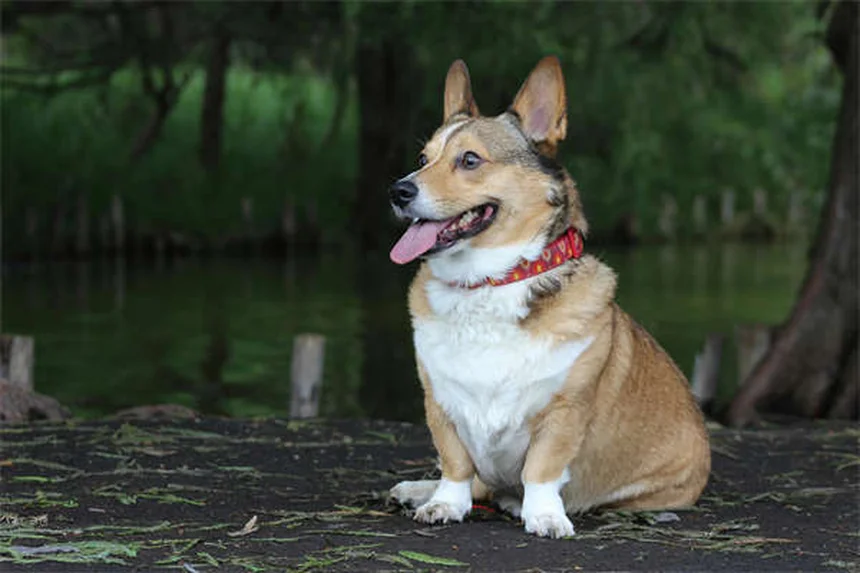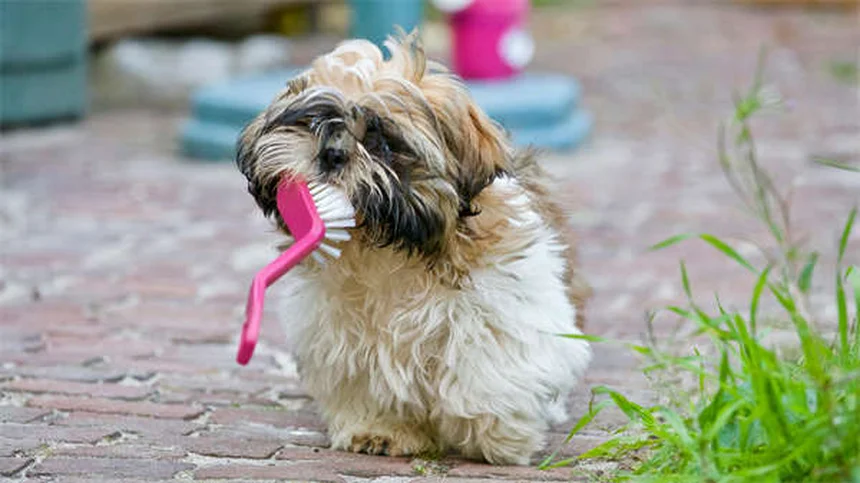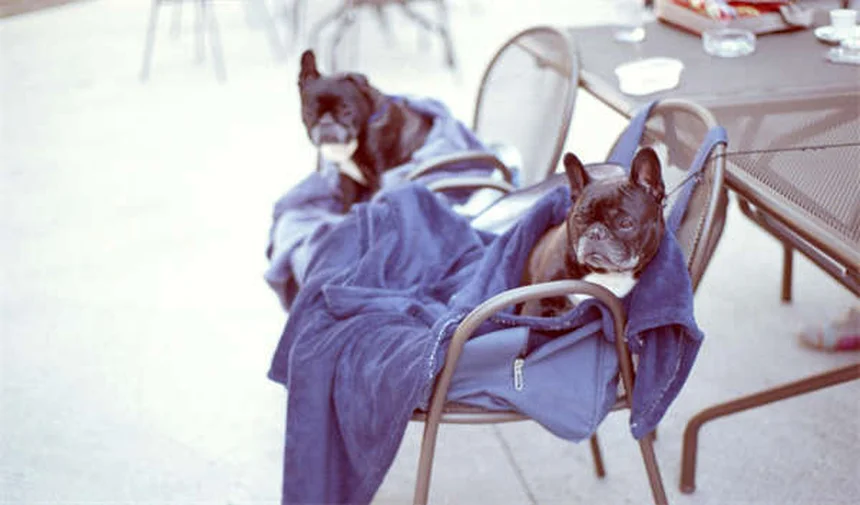Why is my guinea pig losing hair? The answer is: barbering behavior is often the culprit! Just like how we might bite our nails when stressed, guinea pigs chew their own or others' fur when dealing with social conflicts or anxiety. I've seen this happen countless times with my clients' pets - those telltale patchy bald spots with uneven hair lengths are dead giveaways.
The good news? Most barbering cases are easily fixable once you identify whether it's caused by dominance battles (common in adult males), stress (especially in females), or dietary issues. In this guide, we'll walk through exactly how to spot barbering versus other hair loss causes, and most importantly - what you can do today to help your furry friend stop the chewing and regrow their coat.
E.g. :Guinea Pig Cage Setup: 7 Essential Tips for a Happy Pet
- 1、Why Do Guinea Pigs Chew Their Hair?
- 2、What Causes This Chewy Situation?
- 3、Getting to the Root of the Problem
- 4、Keeping Your Guinea Pig Happy and Hairy
- 5、Living With a Hair-Chewing Guinea Pig
- 6、The Hidden Language of Guinea Pig Chewing
- 7、Beyond the Cage - Environmental Factors
- 8、Nutritional Nuances You Should Know
- 9、The Human Factor in Guinea Pig Behavior
- 10、When to Think Outside the Cage
- 11、FAQs
Why Do Guinea Pigs Chew Their Hair?
Understanding Barbering Behavior
Ever seen your guinea pig looking like it got a bad haircut? That's probably barbering - when these furry friends chew or pull their own hair (or their cage-mates'). It's like their version of stress-eating, but with fur instead of ice cream!
Here's what's happening: Adult males often do this during dominance battles, while stressed females might start self-barbering. The result? Patchy bald spots with telltale signs - super short hairs that look like they've been through a tiny lawnmower, and sometimes irritated skin underneath.
Spotting the Signs
"Is my guinea pig losing hair or just getting a weird haircut?" Great question! Here's how to tell:
- Bite marks around bald patches
- Hair loss in specific patterns (not random)
- Red or inflamed skin under missing fur
Unlike normal shedding which is even all over, barbering creates distinct patterns - like someone took tiny scissors to certain spots.
What Causes This Chewy Situation?
 Photos provided by pixabay
Photos provided by pixabay
Social Drama in the Cage
Imagine a high school cafeteria, but with guinea pigs. The big guys pick on smaller ones, and the stressed-out kids start nervous habits. That's basically what's happening here.
Here's a quick comparison of common causes:
| Cause | Who It Affects | How It Looks |
|---|---|---|
| Dominance battles | Adult males | Hair loss on back/hips |
| Stress chewing | Females/young | Front legs/chest |
| Diet issues | Any guinea pig | Patchy all over |
Other Possible Culprits
While barbering is common, don't jump to conclusions! Hair loss can also come from:
- Not enough vitamin C (guinea pigs can't make their own, like we can't make our own coffee in the morning)
- Skin infections (check for crustiness or odor)
- Just growing up (baby fur making way for adult coats)
Getting to the Root of the Problem
Playing Detective With Your Vet
"How can I tell if it's barbering or something serious?" Your vet will be like Sherlock Holmes with a stethoscope, looking for clues:
They'll want to know about your pet's diet, when you first noticed the hair loss, and if you've seen any actual chewing happening. Sometimes they might run tests to rule out other conditions - think of it like eliminating suspects in a mystery novel.
 Photos provided by pixabay
Photos provided by pixabay
Social Drama in the Cage
The fix depends on what's causing the issue:
For social problems: Sometimes you need to separate the "bully" guinea pig or add more hiding spots. I like using PVC pipes - they're like little safe rooms for the nervous ones.
For diet issues: Your vet might recommend vitamin supplements or special food. It's like when your mom made you eat vegetables - not fun, but good for you!
Keeping Your Guinea Pig Happy and Hairy
Prevention Tips
Here's how to stop the chewing before it starts:
1. Give them plenty of space - nobody likes being crowded
2. Provide hiding places (those PVC pipes work great)
3. Offer long-stemmed hay - gives them something else to chew
4. Keep their diet balanced - think of it as their hair conditioner
When to Worry
Most cases aren't emergencies, but call your vet if you see:
- Open wounds (those can get infected)
- Complete loss of appetite
- Signs of pain when touched
Remember, guinea pigs hide illness well, so if something seems off, it's better to check.
Living With a Hair-Chewing Guinea Pig
 Photos provided by pixabay
Photos provided by pixabay
Social Drama in the Cage
If your piggy is already barbering, here's your action plan:
Morning: Check for new bald spots during feeding time
Afternoon: Offer extra hay to keep them busy
Evening: Watch their social interactions during playtime
Long-Term Management
Some guinea pigs just tend to be chewers, like some people bite their nails. In these cases:
- Keep their environment stress-free (calm music helps some pets)
- Regular vet check-ups to catch problems early
- Consider bonding with a very calm cage-mate
The good news? With proper care, most guinea pigs grow their fur back just fine. It might take a few weeks, but soon your pet will be back to their fluffy self!
The Hidden Language of Guinea Pig Chewing
More Than Just Hair - It's Communication
Did you know that when guinea pigs chew hair, they might actually be trying to tell us something? It's like their version of texting, but with nibbles instead of emojis. These little furballs have complex social structures we're just beginning to understand.
Researchers have found that dominant guinea pigs often barber subordinates as a way to maintain hierarchy. It's not just random chewing - there's actual purpose behind it! The subordinate pig typically allows this behavior because resisting could lead to more serious fights. Talk about workplace politics in the animal kingdom!
The Emotional Lives of Guinea Pigs
You wouldn't believe how emotionally sensitive these little guys are. Studies show that guinea pigs experiencing chronic stress have measurable changes in their:
- Cortisol levels (stress hormone)
- Immune system function
- Even their ability to learn new tasks
This means when your piggy starts chewing hair from stress, it's not just a bad habit - their whole body is reacting to something in their environment. Kind of makes you look at that bald patch differently, doesn't it?
Beyond the Cage - Environmental Factors
The Noise Factor You Never Considered
Here's something most owners don't think about: your household sounds might be stressing out your guinea pig. These prey animals have incredibly sensitive hearing, and common noises we barely notice can be terrifying to them.
Let me give you an example from my own experience. My neighbor's guinea pig started barbering when they moved near an airport. After trying everything else, they finally realized the constant plane noise was the culprit. They moved the cage to a quieter room, and guess what? The chewing stopped within weeks!
Lighting Matters More Than You Think
Ever notice how your guinea pig seems most active at dawn and dusk? That's because they're crepuscular animals. Improper lighting schedules can really throw them off.
Here's a quick lighting guide:
| Lighting Condition | Effect on Guinea Pig | Recommended Solution |
|---|---|---|
| Constant bright light | Increased stress | Provide dark hiding spots |
| Complete darkness 24/7 | Disrupted circadian rhythm | Natural light cycle |
| Flashing lights | Extreme stress | Remove strobes/Christmas lights |
Nutritional Nuances You Should Know
It's Not Just About Vitamin C
While we all know guinea pigs need vitamin C, did you realize their hair health depends on several other nutrients too? Zinc, biotin, and certain amino acids play crucial roles in maintaining healthy fur.
I once worked with a guinea pig who kept chewing his fur despite getting plenty of vitamin C. Turned out he was deficient in zinc! After adjusting his diet, his coat grew back beautifully. Moral of the story? Nutrition is more complicated than just tossing them an orange slice.
The Hay Quality Connection
Not all hay is created equal when it comes to preventing barbering. Fresh, high-quality hay does more than just provide fiber - it gives them the perfect outlet for their natural chewing instincts.
Think of it this way: if you give a kid playdough when they want to sculpt, they won't chew their nails. Same principle applies here. Good hay = less hair chewing. Simple as that!
The Human Factor in Guinea Pig Behavior
How Your Mood Affects Your Pet
Here's a wild fact: guinea pigs can actually pick up on human emotions. If you're constantly stressed, your little friend might start mirroring that energy. It's like having a tiny, furry mood ring that chews its own hair instead of changing colors!
I've seen cases where anxious owners had anxious guinea pigs who barbered. When the owner started practicing relaxation techniques, both human and pet became calmer. The hair chewing decreased significantly. Talk about a symbiotic relationship!
The Power of Positive Interaction
Regular, gentle handling does more than just bond you with your pet - it can actually reduce stress-related behaviors like barbering. But there's a right way and wrong way to do it.
Here's what works best:
- Short, frequent sessions (5-10 minutes several times daily)
- Always let the guinea pig come to you
- Use tasty treats as positive reinforcement
- Never force interaction if they seem scared
Remember, building trust takes time, but the results for their mental health (and fur!) are totally worth it.
When to Think Outside the Cage
Alternative Therapies Worth Considering
For chronic barbering cases, some owners have had success with:
Pheromone diffusers: These release calming scents we can't smell but guinea pigs find reassuring. It's like aromatherapy for pets!
Behavioral enrichment: Puzzle feeders, new toys rotated regularly, and cage rearrangements can provide mental stimulation that reduces stress chewing.
Acupuncture: Yes, really! Some holistic vets offer this for anxious small animals with surprisingly good results.
The Bigger Picture of Small Pet Care
At the end of the day, understanding guinea pig barbering means understanding that these are complex little creatures with emotional needs. They're not just cute balls of fur - they're individuals with personalities, preferences, and yes, even mental health needs.
The more we learn about their behavior, the better we can create environments where they don't feel the need to chew their hair. And that's what being a responsible pet owner is all about - understanding the why behind the what.
E.g. :Chewing of Hair in Guinea Pigs | PetMD
FAQs
Q: How can I tell if my guinea pig's hair loss is from barbering?
A: Barbering has distinct signs that set it apart from normal shedding or medical hair loss. Look for uneven hair lengths (like someone took tiny scissors to spots), bite marks around bald patches, and hair loss in specific patterns - often on the back/hips in dominance cases or front legs/chest in stress chewing. The skin underneath might appear red or irritated too. Unlike medical conditions that cause random bald spots, barbering creates intentional-looking patterns. I always tell my clients to watch their guinea pigs closely - if you actually catch them chewing themselves or cage-mates, that's the smoking gun!
Q: What's the fastest way to stop guinea pigs from barbering each other?
A: Separation is your immediate solution when dealing with cage-mate barbering. Think of it like breaking up a schoolyard fight - you need to remove the "bully" guinea pig or protect the submissive one. I recommend setting up a divided cage so they can still see/smell each other but can't physically interact. Adding multiple hiding spots (PVC pipes work great) gives nervous piggies safe spaces. For long-term resolution, you might need to permanently separate dominant males or consider bonding with a more compatible cage-mate. Remember - prevention is easier than fixing established behavior!
Q: Can diet really cause guinea pigs to chew their hair?
A: Absolutely! Diet-related barbering is more common than many owners realize. Guinea pigs can't produce their own vitamin C (just like humans), and deficiency can lead to odd chewing behaviors. Their diet should include: 1) Unlimited timothy hay, 2) Fresh veggies high in vitamin C (bell peppers are great), and 3) Limited pellets. I've seen cases where simply adding a daily vitamin C supplement stopped the chewing within weeks. Always consult your vet before making dietary changes - they might recommend specific supplements or dietary adjustments based on your pet's needs.
Q: Is barbering dangerous for my guinea pig's health?
A: While not immediately life-threatening, barbering can lead to serious complications if left unchecked. The broken skin from constant chewing becomes vulnerable to infections (watch for pus or foul odors). Self-barbering can also indicate chronic stress that weakens their immune system. In my practice, I treat about 2-3 cases monthly where barbering-related skin infections required antibiotics. The psychological impact matters too - constantly stressed guinea pigs are more prone to other illnesses. Early intervention is key to preventing these secondary issues!
Q: How long does it take for chewed hair to grow back?
A: Patience is crucial - guinea pig hair typically grows back within 4-8 weeks after stopping the barbering behavior, assuming the skin isn't damaged. I recommend taking weekly photos to track progress. The regrowth phase looks like soft stubble at first. If you don't see new hair after 2 months, consult your vet - there might be underlying nutritional deficiencies or skin damage slowing the process. During regrowth, ensure your pet gets extra protein (alfalfa hay is good for young/skinny piggies) and keep their environment stress-free to support healthy fur development.


